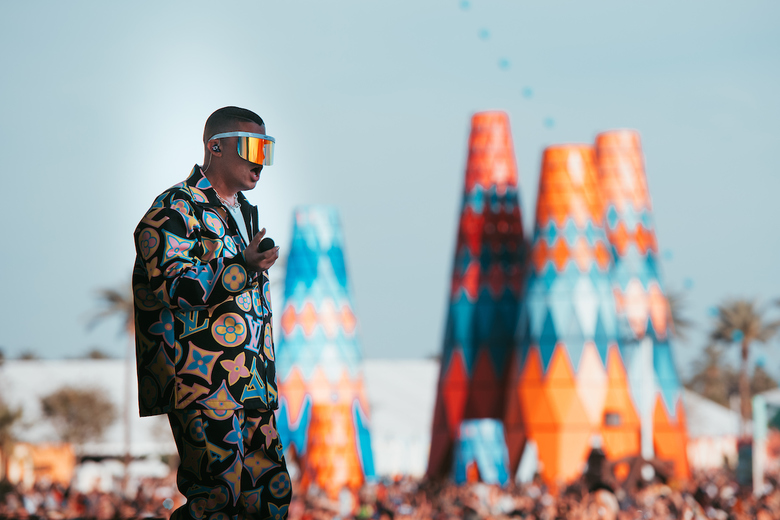Kéré at Coachella
Architect Francis Kéré — born in Burkina Faso and based in Berlin — may be an unlikely choice for Coachella, the popular music festival that takes place in the California desert near Palm Springs for two weekends every April, but his colorful installation stands out from the crowd this year.
Sarbalé Ke, which translates as "the house of celebration," was inspired by the Baobab tree, "the most important tree" in Kéré's native village of Gando, Burkina Faso. This inspiration echoes Kéré's design for the 2017 Serpentine Pavilion, which he analogized as a tree: a wooden canopy that created a sheltered space where people could gather for talks and other events.
At Coachella, the twelve towers — some reaching heights over 60 feet — attract people through their colorful patterns; "Naturally, you will walk toward it," Kéré said, just like a cluster of Baobab trees. And like the trees, the towers provide shade and cooling breezes, through their tapered forms and ventilated construction.





